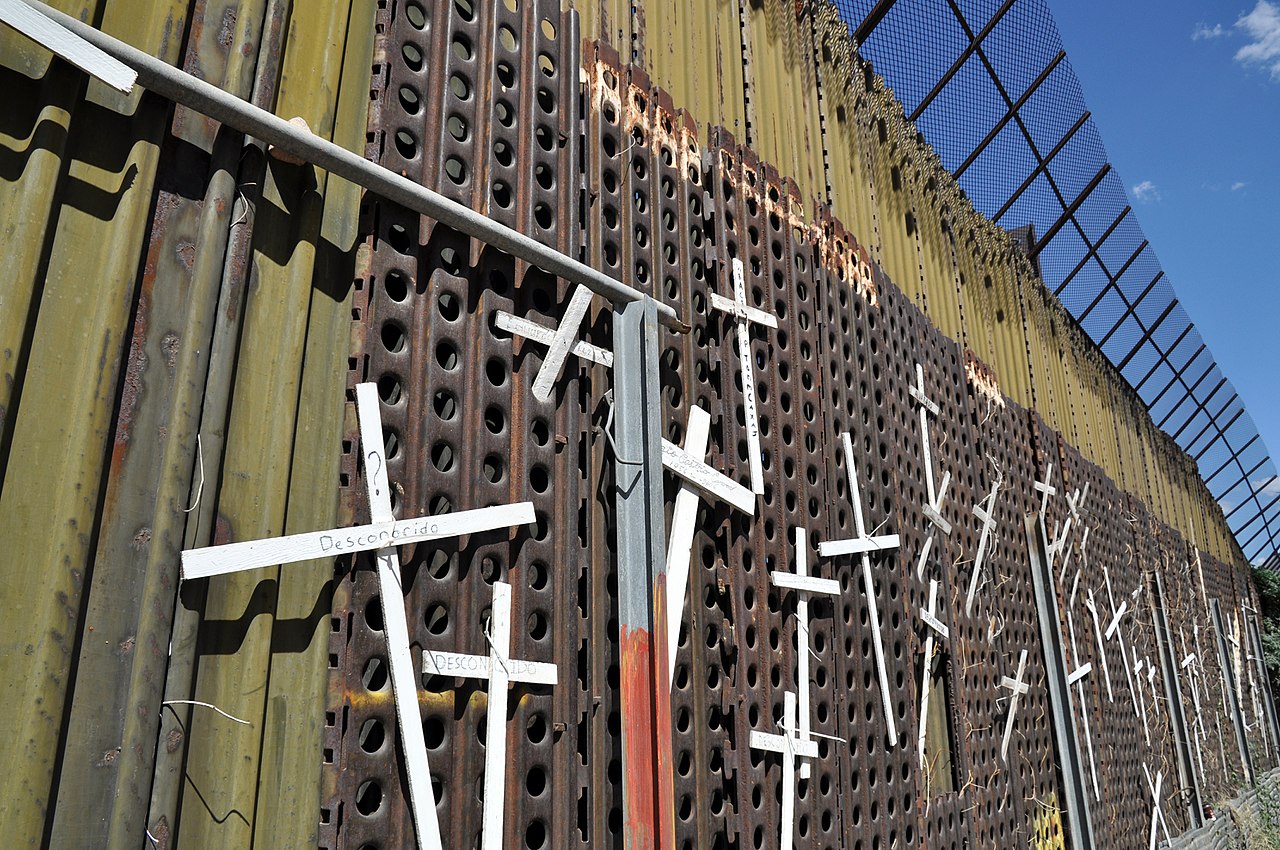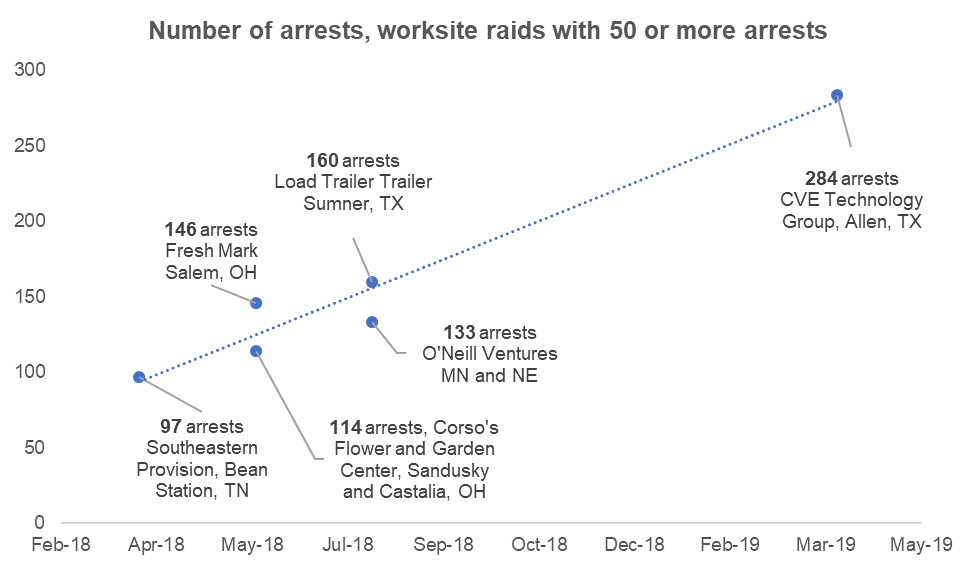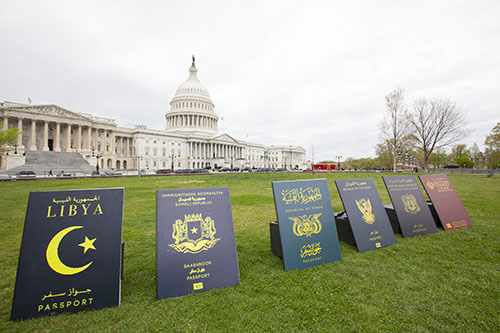FOR IMMEDIATE RELEASE
May 3, 2019
CONTACT
National Immigration Law Center: Hayley Burgess, 202-805-0375, [email protected]
Center for Law and Social Policy: Tom Salyers, 202-607-1074, [email protected]
Reported Trump Regulation Threatens Immigrant Families
Advocates promise unified resistance, urge massive public opposition
WASHINGTON — The Reuters news agency reported today that the Trump administration is preparing regulations that would allow the federal government to deport lawful permanent residents and other immigrants if they utilize any of an array of public programs aimed at reducing illness, hunger, and poverty.
Current law states that the government may not deport someone just for using public programs for which the person is qualified. Advocates for immigrant families, working families, health, nutrition, economic opportunity, children, older adults, and other communities have pledged to oppose the proposal, which Reuters described as likely to be formally proposed soon by the U.S. Justice Department.
“Our nation is at its strongest when all of us can utilize the food, health, housing, and other resources we need to thrive,” said Marielena Hincapié, executive director of the National Immigration Law Center (NILC). “Immigrants are part of our families, communities, and society and should be allowed to use the programs their tax dollars support without fear of immigration consequences. This leaked proposal is yet another cruel attempt to close the door on new Americans and radically change our legal immigration system by creating a wealth test and doing an end-run around Congress. We are prepared to take Trump to court to defend our communities’ freedom to thrive.”
“The best way to strengthen our country is to strengthen the families who live in it. One-fourth of children in the U.S. today have at least one foreign-born parent, so our future depends on the success of immigrant families,” said Olivia Golden, executive director of the Center for Law and Social Policy (CLASP). “We have to stand up against the cruel and harmful policies of this administration that threaten our society, reject our values, and force millions of families to go without the basic needs they need to thrive.”
“Public charge”–based attacks are reportedly a priority for Trump adviser Stephen Miller, architect of the administration’s plan to separate immigrant children from their parents and to jail them. If and when it is proposed, the Justice Department regulation will be subject to a public comment period before it can be finalized and implemented.
A related public charge proposal by the U.S. Department of Homeland Security (DHS) last fall was estimated to potentially affect about 26 million people nationwide. In addition to targeting immigrants with disabilities, who tend to be older and have lower incomes, that proposal would have put applications for admission to the U.S. or applications for a “green card” at risk if an immigrant uses Medicaid, the Supplemental Nutrition Assistance Program (SNAP or “food stamps”), subsidies for Medicare, or certain types of housing assistance, including Section 8 rent vouchers. The proposal drew more than 266,000 public comments, overwhelmingly in opposition.
The new Justice Department proposal is a companion to the DHS public charge regulation. It expands the impact by putting immigrants at risk, including people with green cards, if they’ve accessed programs that meet basic needs. Though the DHS proposal has not yet been finalized, there are already widespread reports of immigrant families withdrawing from critical health and nutrition programs, including for their U.S. citizen children. Even a proposal to expand the deportation criteria will greatly enhance this chilling effect, causing immediate harm to millions of people.
For more information about community education and efforts to fight back against this pernicious proposed rule, visit www.protectingimmigrantfamilies.org.
###
PARA PUBLICACIÓN INMEDIATA
3 de mayo de 2019
CONTACTA
National Immigration Law Center (Centro Nacional de Leyes Migratorias): Hayley Burgess, 202-805-0375, [email protected]
Center for Law and Social Policy: Tom Salyers, 202-607-1074, [email protected]
Regla propuesta por Trump amenaza a las familias inmigrantes
Los defensores de los inmigrantes prometen una resistencia unificada, urgen una oposición pública y masiva
WASHINGTON — La agencia de noticias Reuters informó hoy que la administración del presidente Trump está preparando regulaciones que permitirían al gobierno federal deportar a los residentes permanentes legales y otros inmigrantes si utilizan cualquiera de una serie de servicios públicos destinados a reducir las enfermedades, el hambre y la pobreza.
La ley actual establece que el gobierno no puede deportar a alguien solo por el uso de servicios públicos para los cuales la persona es elegible. Los defensores de las familias inmigrantes, de las familias trabajadoras, de la salud, de la nutrición, de las oportunidades económicas, de los niños, de los ancianos y de otras comunidades se han comprometido a oponerse a la propuesta, que, según Reuters, probablemente será propuesta oficialmente muy pronto por el Departamento de Justicia de EE.UU.
“Nuestra nación es más fuerte y saludable cuando todos podemos aprovechar de la comida, de la salud, de la vivienda y de otros recursos que necesitamos para prosperar”, dijo Marielena Hincapié, directora ejecutiva del Centro Nacional de Leyes Migratorias (NILC, por su sigla en ingés). “Los inmigrantes son parte de nuestras familias, de nuestras comunidades y de nuestra sociedad, y se les debe permitir usar los servicios que ellos apoyan con sus impuestos sin temor a las consecuencias de inmigración. Esta propuesta es otro intento cruel de cerrar la puerta a los nuevos americanos y cambiar radicalmente nuestro sistema de inmigración mediante la creación de una prueba de riqueza y con fin de evitar pasar legislación por los canales normales del Congreso. Estamos preparados a demandar a Trump para defender a nuestras comunidades”.
“La mejor manera de fortalecer nuestro país es fortalecer a las familias que viven aquí. Uno de cada cuatro de los niños en los EE.UU. tiene al menos un padre nacido en el extranjero, y por eso nuestro futuro depende del éxito de las familias inmigrantes”, dijo Olivia Golden, directora ejecutiva del Centro para Ley y Política Social (CLASP, por su sigla en inglés). “Tenemos que enfrentarnos a las políticas crueles y dañinas de esta administración que amenazan a nuestra sociedad, rechazan nuestros valores y obligan a millones de familias a vivir sin las cosas básicas que necesitan para prosperar”.
Los ataques basados en la “carga pública” son una prioridad para el asesor de Trump Stephen Miller, arquitecto del plan de la administración para separar a los niños inmigrantes de sus padres y encarcelarlos. Cuando se proponga, el reglamento del Departamento de Justicia estará sujeto a un período de comentarios públicos antes de que se pueda finalizar e implementar.
Se estimó que una propuesta sobre la carga pública relacionada a esta y realizada por el Departamento de Seguridad Nacional de los EE.UU. (DHS, por su sigla en inglés) el otoño pasado podría afectar a aproximadamente 26 millones de personas en todo el país. Además de dirigirse a los inmigrantes con discapacidades, que tienden a ser mayores y con ingresos más bajos, esa propuesta habría puesto en riesgo las solicitudes de admisión a los EE.UU. o las solicitudes de residencia si un inmigrante usa Medicaid, el Programa de Asistencia de Nutrición Suplementaria (SNAP, por su sigla en inglés, también conocido como “cupones de comida”), subsidios para Medicare o ciertos tipos de asistencia para la vivienda, incluidos los comprobantes de alquiler de la Sección 8. La propuesta atrajo más de 266,000 comentarios públicos, abrumadoramente en oposición.
La nueva propuesta del Departamento de Justicia es un complemento a la regulación de la carga pública del DHS. Expande el impacto al poner en riesgo a los inmigrantes, incluidos a los residentes legales, si han usado servicios que satisfacen necesidades básicas. Aunque la propuesta del DHS aún no se ha finalizado, ya hay informes de familias inmigrantes que se han retirado de servicios críticos de salud y nutrición, incluso para sus hijos ciudadanos de los EE.UU. Una propuesta para ampliar los criterios de deportación incrementará enormemente este efecto escalofriante, causando un daño inmediato a millones de personas.
Para obtener más información para educar a la comunidad y sobre los esfuerzos para luchar contra esta regla perniciosa, visite www.protectingimmigrantfamilies.org.
###










